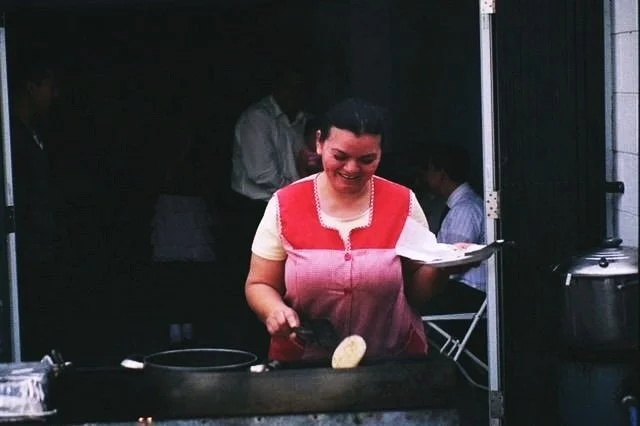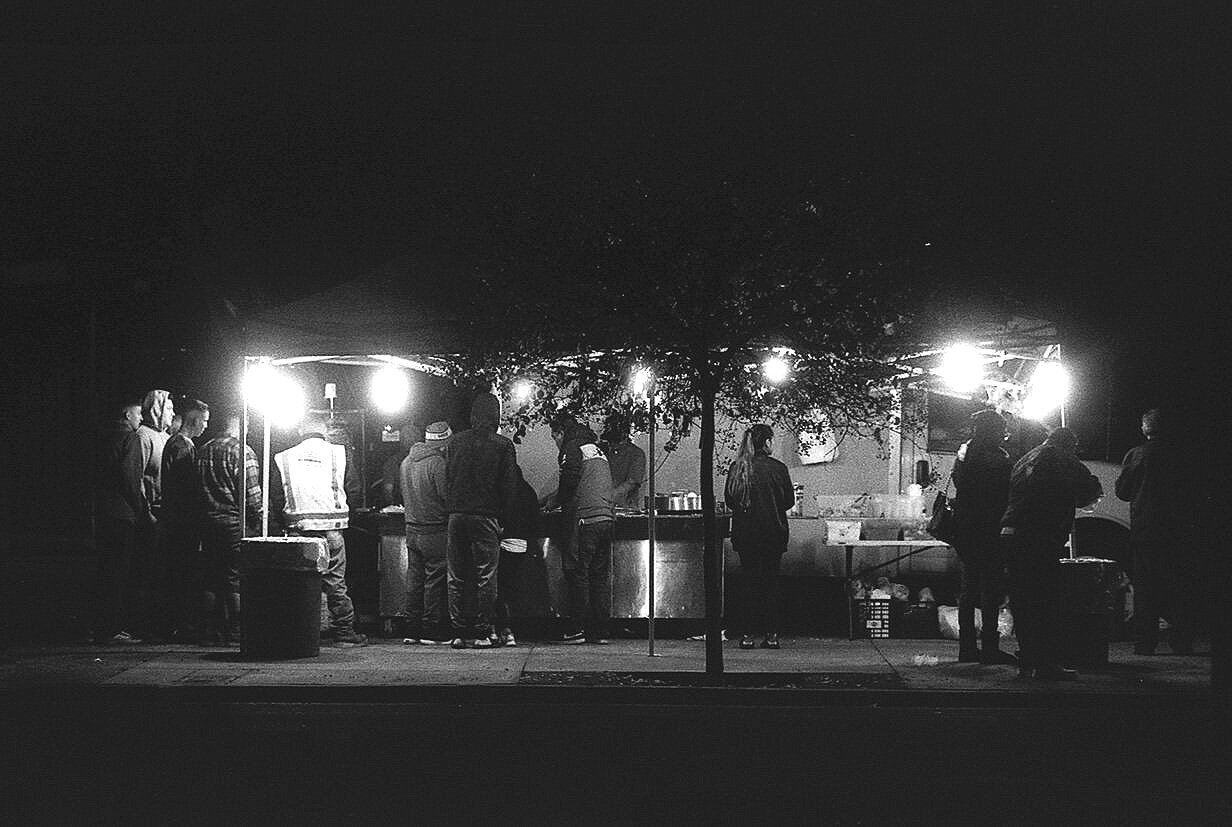Photography courtesy of Julian Lucas ©2013
Pomona city council adopted a set of urgency ordinances on Oct. 21 that will create new regulations and restrictions for street vendors to follow in order to continue business within the streets of the city.
The urgency ordinance will create a regulatory mechanism for street vendors “to assure that safety hazards, such as inhibiting the ability of individuals with disabilities and other pedestrians to follow a safe path of travel; public exposure to fire hazards such as open outdoor flames; interference with the performance of police, firefighter, and emergency medical personnel services; and obstacles contributing to congestion for pedestrian, vehicle, and bicycle traffic are mitigated to ensure the public health, safety and welfare of the community.”
The ordinances will be affected immediately. During a 30-day grace period, the city will conduct an outreach program to inform the community about the new regulations. Soon after, a newly formed Division 4 will enforce the new obstruction laws, cite and confiscate the equipment from street vendors.
The new bylaws will also require every street vendor to apply and display a vendor’s permit. If the item for sale is food, they must also complete a food handler’s course through the LA County Department of Public Health and provide a copy of completion.
The Development Service Department will lead the Code Enforcement Division. It will cost the city of Pomona an estimate of $200,000 in overtime pay to ensure street vendors follow the new regulations and it will be appropriated from other city departments like Development Service Code Enforcement, Public Works and the Police Department.
Community member Greg Estel expressed his gratitude toward the council and the mayor during public comment for setting up oversight over the street vendors in the streets of Pomona.
“We must protect the health of our community, streets, our sidewalks and the future promotion of business by making sure everyone is held to the same standards,” Estel said. “I urge the council to consider implementing this location based ordinance for the benefit of our entire city.”
The new regulations are the result of a report conducted by the Sidewalk Vending subcommittee. After the reports were given to the city council, they directed staff to create an ordinance to address the findings during an Aug. 5 meeting.
Vendors have set up business on the sidewalks of main streets and the city has received a number of complaints from the community reporting restricted sidewalks, walkways, parking lots and streets.
On Oct. 14, 2022, a driver crashed into the curb line and injured 12 people waiting, including one death, while they were waiting for their food or food orders from a vendor.
As a result, the ordinance states the City Planning Division will develop interactive maps that display all sidewalks with restrictions for Sidewalk Vending Districts approved by the city manager.
As a result of the approval of the urgency ordinances, the Business Department of the City of Pomona will create a Sidewalk Vending Program. The new department will be in charge of creating a system to inform the city council of all permits that are allocated, revoked and all the citations that are given.
The program will also be in charge of evaluating all applications and conducting community outreach programs that will provide education on the process of receiving a street vending permit, in Spanish and any other language that is needed.
In a separate ordinance, the city council approved appropriating $16,000 from the general fund in order to cover overtime expenses for public outreach regarding the new restrictions and regulations.
Community member Elinor Crescenzi expressed her concerns about how the regulations will affect the unhoused population setting up tents on sidewalks.
“I was very alarmed by what I saw [on the city council agenda],” Crescenzi said. “I saw an extremely broad policy targeting street vendors, in my mind an aggressive, and inappropriate way, but with very distinct implications for harm against people living in the streets.”
As a result of the concerns Crescenzi and other community members raised, council agreed to redact an item on the list of sidewalk obstructions that could be used against unhoused people.
In a community message board online, Guillermo Gonzalez, who is running for district 4 council, expressed concerns over execution of the newly approved amendments.
“There are several parts of the ordinance that needed work, most of it related to transparency and accountability,” Gonzalez stated. “Given the city’s track record with previous ordinance, I’m not confident they can execute on this ordinance.”
Anthony Solorzano is the freelance writer. He has been pursuing journalism since he realized he hated his job. Anthony loves to tell stories using humor and is passionate about covering his hometown of Pomona.











